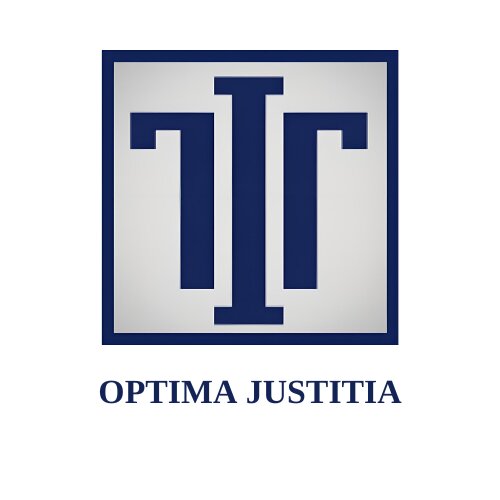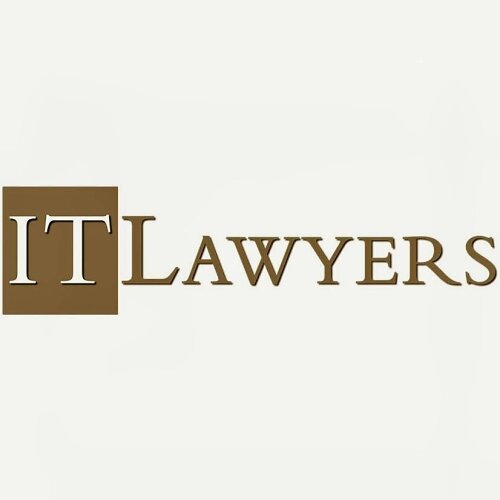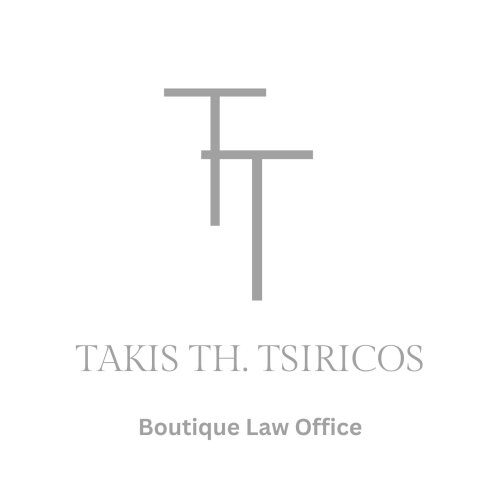Best Information Technology Lawyers in Greece
Share your needs with us, get contacted by law firms.
Free. Takes 2 min.
Or refine your search by selecting a city:
List of the best lawyers in Greece
About Information Technology Law in Greece
Information Technology (IT) law in Greece encompasses a wide range of legal areas because of the dynamic and multifaceted nature of the technology sector. With the rapid advancement of digital technologies, Greece is committed to establishing a robust legal framework that allows individuals and businesses to leverage IT solutions while ensuring data protection and cybersecurity. The Greek government has focused on digital transformation, encouraging innovation while safeguarding ethical standards and privacy laws.
Why You May Need a Lawyer
Individuals and businesses may require legal assistance in the field of Information Technology in Greece for several reasons:
- When entering into technology service or supply contracts, especially with international elements.
- For compliance with data protection laws, such as GDPR, that regulate how personal data is collected and used.
- In cases of intellectual property rights negotiations or disputes concerning software, applications, or digital content.
- To resolve disputes related to e-commerce transactions or online services.
- In instances where cybersecurity incidents occur, necessitating legal guidance on breach response and notification obligations.
Local Laws Overview
Greece has several key legislative measures and frameworks that govern Information Technology:
- GDPR Compliance: Greece adheres to the EU’s General Data Protection Regulation, which has a significant impact on how organizations must handle personal data.
- Law on Personal Data Protection (Law 4624/2019): A supplemental law that adapts GDPR principles to the national context.
- Cybersecurity and Network Security: Law 4577/2018 implements the EU Directive on security of network and information systems (NIS Directive).
- E-commerce and Digital Services: Regulated under various EU directives and corresponding national laws to ensure consumer protection and legal certainty in online transactions.
Frequently Asked Questions
What is the GDPR and how does it affect IT businesses in Greece?
The General Data Protection Regulation (GDPR) is an EU regulation that sets guidelines for the collection and processing of personal information. IT businesses in Greece must comply with these strict regulations to protect consumer privacy and avoid substantial fines.
Do I need to register my e-commerce business with any Greek authority?
While there isn’t a specific registration just for e-commerce businesses, they must comply with general commercial law regulations, including tax identification and consumer protection standards.
How is intellectual property protected in the IT domain in Greece?
Intellectual property in IT can be protected through patents, copyrights, and trademarks. Greek and EU laws provide frameworks for registering and defending these rights.
What steps can a business take to ensure cybersecurity compliance in Greece?
Businesses should adhere to international cybersecurity standards, implement rigorous internal policies, and comply with Greece’s adaptation of the EU's NIS Directive to protect network and information systems.
Are there any local regulations about online advertising in Greece?
Yes, online advertising must comply with EU regulations concerning consumer rights, unfair commercial practices, and data protection laws.
What is the role of the Hellenic Data Protection Authority?
The Hellenic Data Protection Authority (HDPA) is responsible for ensuring that laws protecting personal data are strictly applied in Greece, offering advice and imposing sanctions where necessary.
What legal challenges might arise from using third-party IT services?
When using third-party IT services, challenges can arise from data protection compliance, breach of contract, and discrepancies in service delivery versus expectations or SLAs.
What are the penalties for data breaches under Greek law?
Penalties for data breaches can include severe fines, especially under the GDPR, ranging up to €20 million or 4% of the company’s annual global turnover, whichever is higher.
Can Greek companies use cloud services based outside the EU?
Yes, but they must ensure that data is transferred in compliance with GDPR, requiring an adequacy decision by the EU or appropriate safeguards such as Standard Contractual Clauses (SCCs).
How can consumers report fraudulent IT services or cyber incidents?
Consumers can report cybersecurity incidents to the Hellenic Cybercrime Unit, while issues with fraudulent IT services can be reported to consumer protection agencies.
Additional Resources
For those seeking further information or guidance, consider the following resources:
- Hellenic Data Protection Authority (HDPA): Provides resources and guidance on data protection rights and regulations in Greece.
- Hellenic Federation of Enterprises (SEV): Offers resources on business development and discussions on digital transformation.
- Ministry of Digital Governance: The governmental body overseeing the digital transformation policies in Greece.
- Hellenic Cybercrime Unit: Handles issues related to cybercrime and provides resources for reporting incidents.
Next Steps
If you require legal assistance in the field of Information Technology in Greece, consider the following steps:
- Assess Your Needs: Clearly define the legal issue you are facing and gather any relevant documentation or information.
- Consult a Specialist Lawyer: Seek out legal professionals or firms with expertise in IT law, data protection, and intellectual property in Greece.
- Schedule a Meeting: Arrange an initial consultation to discuss your case and understand potential legal avenues and outcomes.
- Engage Legal Representation: If necessary, hire a lawyer to represent your interests, ensuring they equip you with proactive strategies and responses.
Lawzana helps you find the best lawyers and law firms in Greece through a curated and pre-screened list of qualified legal professionals. Our platform offers rankings and detailed profiles of attorneys and law firms, allowing you to compare based on practice areas, including Information Technology, experience, and client feedback.
Each profile includes a description of the firm's areas of practice, client reviews, team members and partners, year of establishment, spoken languages, office locations, contact information, social media presence, and any published articles or resources. Most firms on our platform speak English and are experienced in both local and international legal matters.
Get a quote from top-rated law firms in Greece — quickly, securely, and without unnecessary hassle.
Disclaimer:
The information provided on this page is for general informational purposes only and does not constitute legal advice. While we strive to ensure the accuracy and relevance of the content, legal information may change over time, and interpretations of the law can vary. You should always consult with a qualified legal professional for advice specific to your situation.
We disclaim all liability for actions taken or not taken based on the content of this page. If you believe any information is incorrect or outdated, please contact us, and we will review and update it where appropriate.
Browse information technology law firms by city in Greece
Refine your search by selecting a city.













